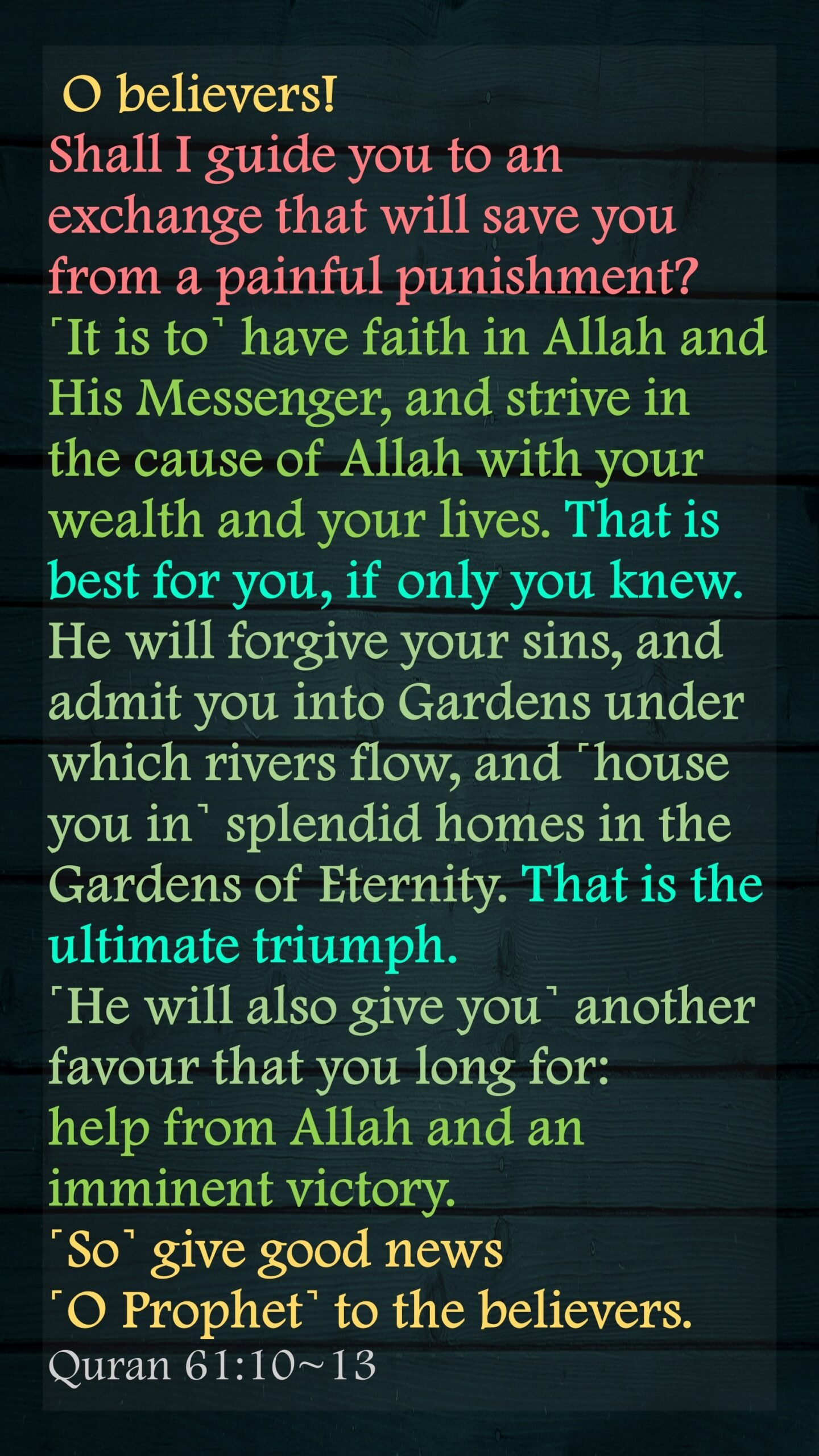24
Sep, 2022
2
Sep, 2022
Quran 55:46~53
Islam, Quran Allah, Ar Rahman, awe, ayat, Chapter 55, fruit, garden, inspirations, islam, islamic, lush, prayer, quran, springs, stand, Surah
19
Jul, 2022
Quran 48:4~5
Islam, Quran absolve, achievement, All-Knowing, All-Wise, Allah, ayat, believers, Chapter 48, daily, earth, Faith, forces, garden, heart, Heaven, inspirations, islam, islamic, quran, serenity, sin, supreme, Surah, Verse 4, verse 5
12
Jul, 2022
Quran 26:78~85
Islam, Quran Abrahim, Allah, ash-Shu`ara', Award, ayat, Azar, Bless, Bliss, chapter 26, creator, daily, garden, generations, grant, Guider, Healer, Heaven, honorable, Ibrahim, inspirations, islam, islamic, later, Lord, me, mention, Poets, provider, quran, Resurrector, righteous, supplication, Surah, SWT, verses 78 to 85, wisdom
12
May, 2022





